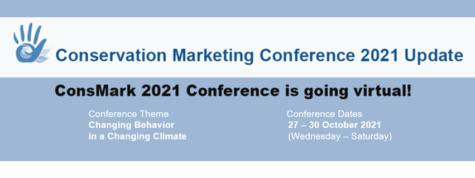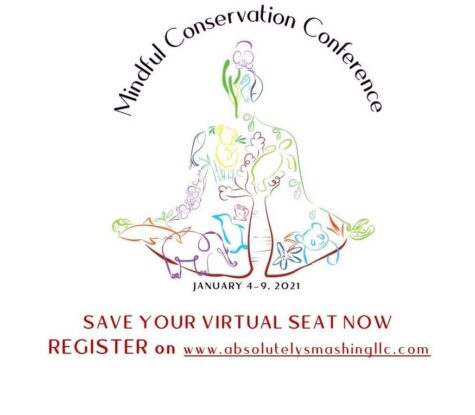At the ECS we believe it is important for the marine mammal scientific community, not only in Europe but worldwide, to stay in touch during the corona pandemic. Hence, we are delighted to announce the final program for an ECS WEBINAR taking place between 15th to 19th March 2021, where invited experts will share their knowledge and experiences with the wider community on a range of topics covered traditionally at the ECS conferences. We hope that the program we put together is as interesting to you, as it is to us!
To gain access, please follow the guidelines given at the end of this notice.
Monday, 15 March
14:45 – 15:00 (CET) – Welcome presentation to the webinar, by Dr. Joan Gonzalvo, Chair of the European Cetacean Society
15:00 – 15:30 (CET) – “Are all marine mammals affected by climate change?”, by Camille Albouy –IFREMER, Unité Ecologie et Modèles pour l’Halieutique, EMH
15:30 – 15:45 (CET) – Period for questions to the presenter.
16:00 – 16:30 (CET) – “Cetaceans as oceanic engineers”, by Dr. Heidi Pearson – Department of Natural Sciences, University of Alaska Southeast
16:30 – 16:45 (CET) – Period for questions to the presenter.
Tuesday, 16 March
10:00 – 10:20 (CET) – “Impacts of disturbances on marine populations – the importance of animal movements and energetics”, by Dr. Jacob Nabe-Nielsen – Department of Bioscience, Section for Marine Mammal Research, Aarhus University
10:20 – 10:30 (CET) – Period for questions to the presenter.
10:40 – 11:00 (CET) – “Porpoise conservation from science to regulation – basic principles illustrated by German wind farm developments”, by Dr. Michael Dähne – German Oceanographic Museum
11:00 – 11:10 (CET) – Period for questions to the presenter.
11:20 – 11:50 (CET) – “Studying the environment and ecology of the deep diving elephant seals: 20 years of sensors development”, by Dr. Christophe Guinet – Centre d’Etudes Biologiques de Chizé, CNRS-La Rochelle Université
11:50 – 12:05 (CET) – Period for questions to the presenter.
Wednesday, 17 March
15:00 – 15:30 (CET) – “Cetacean conservation: why maths matters”, by Dr. Greg Donovan
15:30 – 15:45 (CET) – Period for questions to the presenter.
16:00 – 16:30 (CET) – “50 years of learning from the bottlenose dolphins of Sarasota Bay”, by Dr. Randall S. Wells – Chicago Zoological Society’s Sarasota Dolphin Research Program
16:30 – 16:45 (CET) – Period for questions to the presenter.
Thursday, 18 March
10:00 – 10:30 (CET) – “Cetacean tourism: It takes time and space”, by Dr. Rochelle Constantine – School of Biological Sciences and Institute of Marine Science, University of Auckland
10:30 – 10:45 (CET) – Period for questions to the presenter.
11:00 – 11:20 (CET) – “Narwhals in peril”, by Professor Mads Peter Heide-Jørgensen, Greenland Institute for Natural Resources
11:20 – 11:30 (CET) – Period for questions to the presenter.
11:40 – 12:00 (CET) – “Killer whales of the Strait of Gibraltar, an endangered subpopulation showing a disruptive behaviour”, by Dr. Ruth Esteban – Madeira Whale Museum
12:00 – 12:10 (CET) – Period for questions to the presenter.
Friday, 19 March (Students Session)
15:00 – 15:20 (CET) – “Temporal acoustic occurrence of sperm whales (Physeter macrocephalus) and long-finned pilot whales (Globicephala melas) off western Ireland”, by Cynthia Barile – Marine and Freshwater Research Centre – Galway-Mayo Institute of Technology
15:20 – 15:30 (CET) – Period for questions to the presenter.
15:40 – 16:00 (CET) – “Deep-diving beaked whales dive together but forage apart”, by Jesús Alcázar-Treviño – BIOECOMAC, Departamento de Biología Animal, Edafología y Geología. Universidad de La Laguna (ULL)
16:00 – 16:10 (CET) – Period for questions to the presenter.
16:20 – 16:40 (CET) – “Fishing practices affect the behavioural budget of bottlenose dolphins off the coast of Montenegro, South Adriatic Sea”, by Laura Rudd – DMAD – Marine Mammals Research Association
16:40 – 16:50 (CET) – Period for questions to the presenter.
The webinar is open to everyone and no registration is needed. It will be hosted by the ECS using ZOOM WEBINAR.
To get access links, please send an e-mail to webinar2021@europeancetaceansociety.eu. You will automatically receive the necessary information.
The presentations will be recorded and posted online to render them accessible to a wider audience after the event, unless indicated otherwise by those presenters who may be sharing some sensitive material (e.g., unpublished data).
Link to the program: https://www.europeancetaceansociety.eu/ecs-webinar-2021








